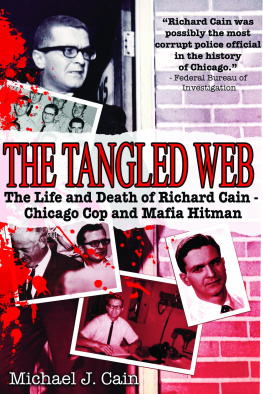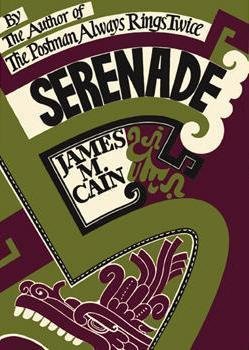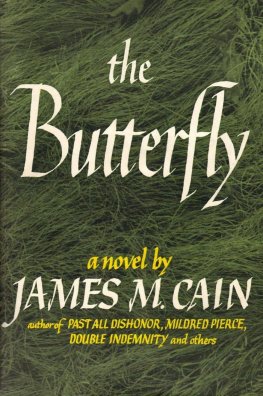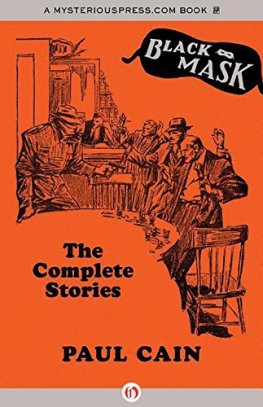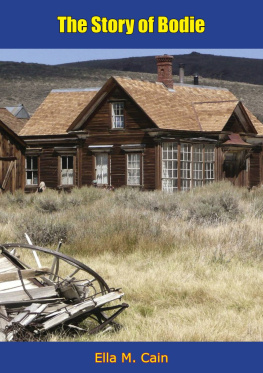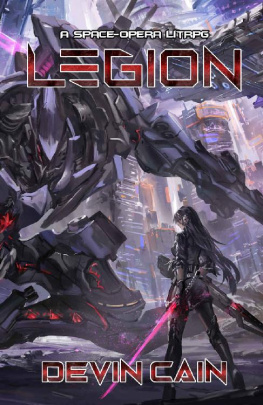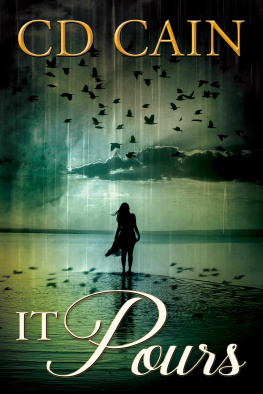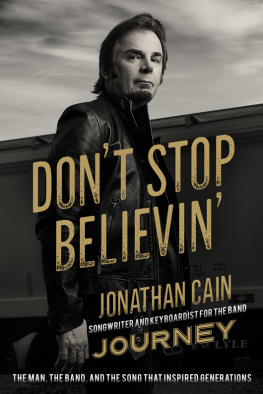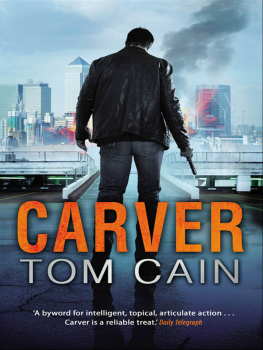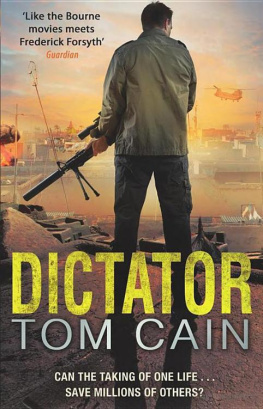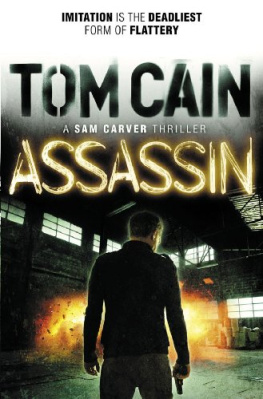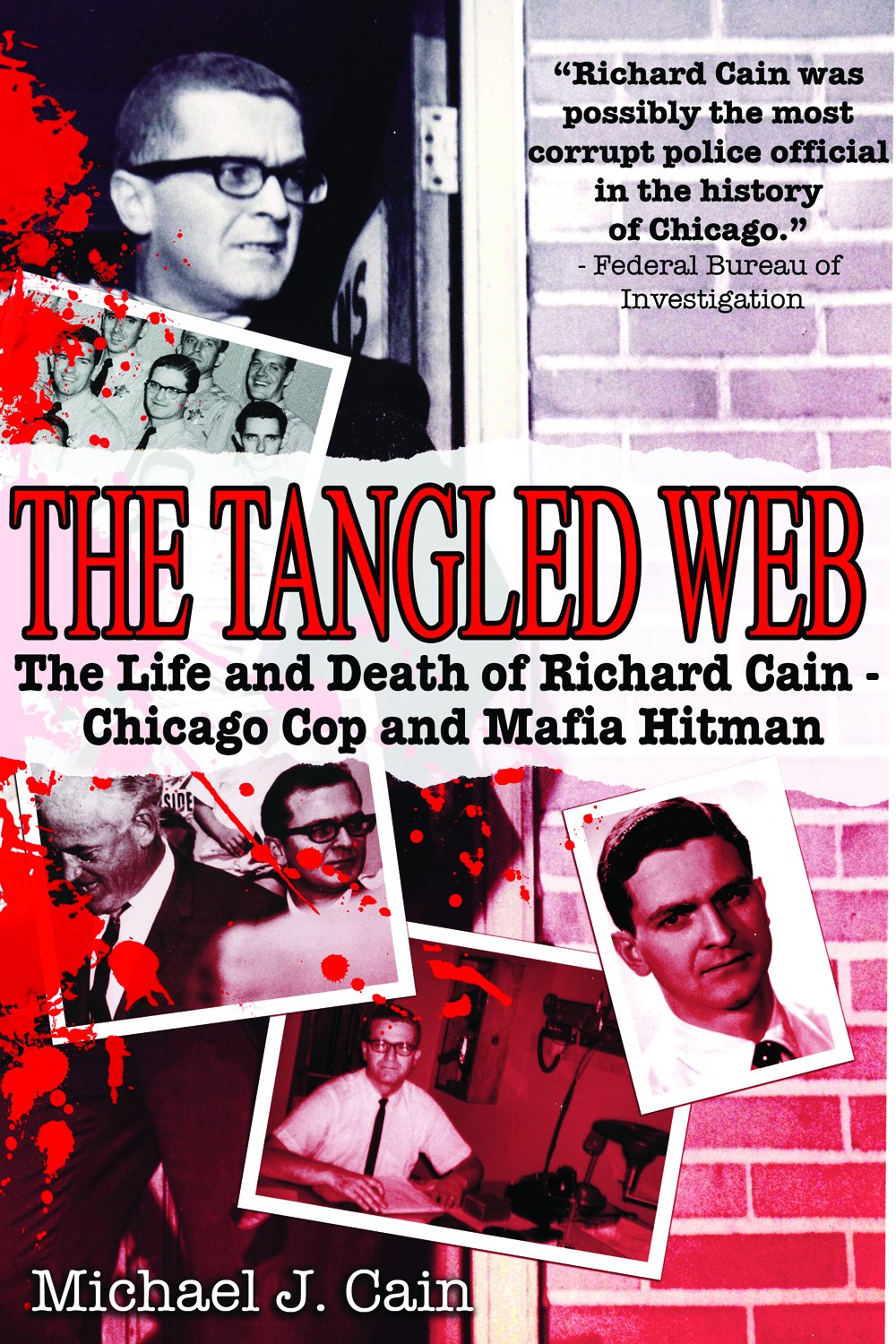It takes the support of many people to write a book, especially one that happens over as many years as this one. Id like to thank Bill Roemer for his encouragement and his friendship, Bunny Porter for being my best friend when I most needed one, and Lydia Cain, who opened her home and her heart to me.
EPILOGUE
In the years since Dick Cain was murdered, organized crime in America has gone through a transformation. The concept of omerta , silence, once considered the cornerstone of the Mafia, has all but disappeared. These days, mobsters are tough until theyre threatened with prison. Theyre flipping as informants while still active in order to avoid long sentences. In the twenties and thirties, these guys stuck by one another. If they got busted, they did their time and kept their traps shut; a prison sentence was a badge of honor. Today, they listen seriously to offers of immunity and shortened sentences and witness protection, and they sell their friends down the river, seemingly without a second thought.
Im not suggesting we should mourn its passing, but the Mafia of today is but a shadow of its former self. When Prohibition started in this country, we entered into a pact with the devil, and the byproduct was organized crime. They had existed, to be sure, before Prohibition, but their reach was limited. With the introduction of speakeasies and bathtub gin, suddenly (and it really was almost an overnight phenomenon) the Mafia touched us all. Worse than that, we didnt seem to mind. We glamorized them, we idolized them, and we respected them; we waited in line to see the movies about mobsters and the seemingly pointless fight against them. They provided the booze to a country that had been fairly ambivalent about booze until told they couldnt have it. Prohibition created explosive growth for two simultaneous cultural tragedies: organized crime and epidemic-level alcoholism.
Average citizens looked the other way when they knew a crime involving the mob took place. After all, they reasoned, they keep their dirty laundry within the group. Sure, they commit murder now and again, but they only kill one another. They dont kill outsiders. We can live with that. Or can we? When the mob got involved in drugs, just like the old timers predicted, everything changed. They couldnt contain the violence within their own ranks because they were forced to do business with outsiders. Worse than that, with easy access to drugs, many of the mob guys started using themselves.
The mob today is not the tightly-knit organization it once was, whose members are men of respect. They are now a crumbling gang of old men with old ideas, being slowly squeezed out of their positions by a generation of wannabes who have lost the respect of the public and their peers. They are still a threat, though, because they are so deeply entrenched in society. People who are victimized directly by the mob are unwilling to test the viability of the organization because the consequences of a miscalculation are so serious.
During the course of my research I spent some time talking with Bob Cooley, the former mob lawyer from Chicago who chose to become a government witness against the mob, and who almost single handedly brought down the First Ward political machine. Bob didnt see the error of his ways. There was no epiphany of conscience. He got mad. The Outfit put a contract on his life because he stood on principle and refused to identify a snitch and, in effect refused to send a man to his death. His reaction was to first get the contract lifted and then to wear a wire for the G for more than three-and-a-half years before he came in and started making cases for the government. He put a lot of people in jail and today lives his life in a version of the witness protection program. What he did took a lot of courage, but hes pragmatic about it. It was the right thing to do, he told me, and hed do it again in a heartbeat. His story reflects how organized crime has degenerated over the years. His book When Corruption Was King (2004, Carroll & Graf, with Hillel Levin) is a fascinating summary of how the mob ruled in Chicago back in the day, and how theyve crumbled in recent years.
On a personal note, one of the most troubling aspects of writing this book was dealing with the fact that Dick Cain had crossed the line. My brother was a criminal and most likely a killer. Dick lived a fantasyan evil fantasy from which he could neither retreat nor recover.
In the early days of my research, I kept hoping for a breakthrough, for some validation of Bill Roemers statement that he was a martyr. The reality is that Dick Cain was an intelligent, handsome guy blessed with all the best qualities of his Irish and Italian heritage, save one. I have found no evidence to suggest Dick Cain had a conscience. His was a life of absolute self-centeredness.
Dick Cain had no respect for the mob. He held most of the mobsters he knew in the highest disregard. He felt capable of taking control because he was smarter than his peers, but he failed to recognize that being smart isnt what makes a boss; its being ruthless. He thought he could outsmart them. But when these guys hit a wall, they knock it down. They dont try to climb it, walk around it, or tunnel under it. They blow it up. And so it was with Dick Cain. They didnt know how to deal with him, so they whacked him.
Dick Cain led an interesting life. He made a lot of bad choices, but he made them with his eyes open. He knew the risks of his lifestyle and he embraced them. Im not proud of my brotherIve spent too many hours trying to pick up the pieces of the shattered lives he left in his wake, from his daughters to his grandchildren. And I dont mean to attach any noble purpose to my own life; I did what I could, when I could, knowing full well that it would never be enough.
Dick was married at least three times, possibly four. He was father to five children and adopted one. His six daughters drifted in and out of his life and, if it was inconvenient for him to care, he simply didnt. Of the six, four survive today, and as I write this one is struggling for her life. It would be easy enough to say that he was a lousy father, but that would be incomplete. He loved his daughtershe just didnt know how to be a father to them. I believe he really wanted to, and there are some shining, if isolated, examples of his doing good things for them. Ultimately, though, he couldnt deliver, and the daughters who did well in their lives did so largely because of their mothers. I hope these four and their children can take some comfort in reading this book, to finally understand what he was all about, and to find, perhaps, some closure.

